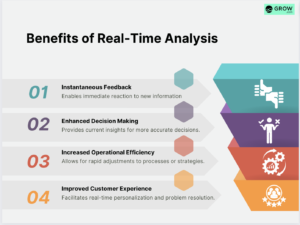
By examining the common characteristics of thriving small businesses, both aspiring and seasoned entrepreneurs can gain valuable insights into what works – and what doesn’t – when running a business.
Understanding Why Small Businesses Fail
Before diving into what makes businesses succeed, it’s crucial to recognize why many fail:
- Incompetence: A significant 46% of businesses fail due to a lack of understanding of the complexities involved in running a business. Even with the best intentions, many entrepreneurs aren’t sufficiently educated in essential business practices.
- Lack of Managerial Experience: Approximately 30% of businesses falter because their owners lack the managerial expertise necessary for success. Poor leadership, inadequate credit management, failure to analyze key financial data, and mishandling logistics can quickly lead a business into trouble.
- Insufficient Product Knowledge: About 11% of businesses fail because the owners don’t fully understand the products or services they offer. This lack of knowledge can result in pricing errors and wasted resources. Gaining a solid foundation in logistics – such as understanding financial ratios, trend analysis, and effective budgeting – is critical to a business’s longevity.
What Makes a Business Successful?
While implementing success strategies can be challenging, understanding them is the first step:
- Define Your Purpose Beyond Profit: If your only goal is to make money, you’re setting yourself up for disappointment. While financial success is important, the most successful entrepreneurs are driven by a desire to solve a problem, pursue a passion, contribute to their community, or provide exceptional service. These deeper motivations are what sustain a business through tough times.
- Leverage Your Expertise: Stick to what you know. If you have extensive experience in a particular field, such as sporting goods, use that knowledge to your advantage. Venturing into a business where you have little experience – like opening a bakery without ever baking – will only create unnecessary challenges. Familiarity with your product or service also makes it easier to navigate industry-specific financial metrics.
- Maximize Resources: Successful business owners are masters of efficiency. They know how to make the most of every resource, cutting corners where necessary without compromising quality. For example, during lean times, a savvy entrepreneur might opt for second-hand office equipment rather than splurging on new items, thus preserving capital for more critical needs.
- Diversify Your Investments: Just as financial advisors recommend diversifying personal investments, the same principle applies to business ownership. Don’t rely solely on one income stream or investment. Once your business is stable and generating a steady profit, look for opportunities to expand and diversify. This strategy can help protect your business from sudden financial downturns.
Leveraging iCFO for Business Success
iCFO can provide valuable insights and support to help you implement these strategies effectively. Our team of experts can assist with:
- Financial analysis and planning: We can help you analyze your financial performance, identify areas for improvement, and develop a sustainable growth strategy.
- Risk management: We can help you identify and mitigate potential risks that could threaten your business.
- Strategic planning: We can work with you to develop a clear vision for your business and create a roadmap for achieving your goals.






